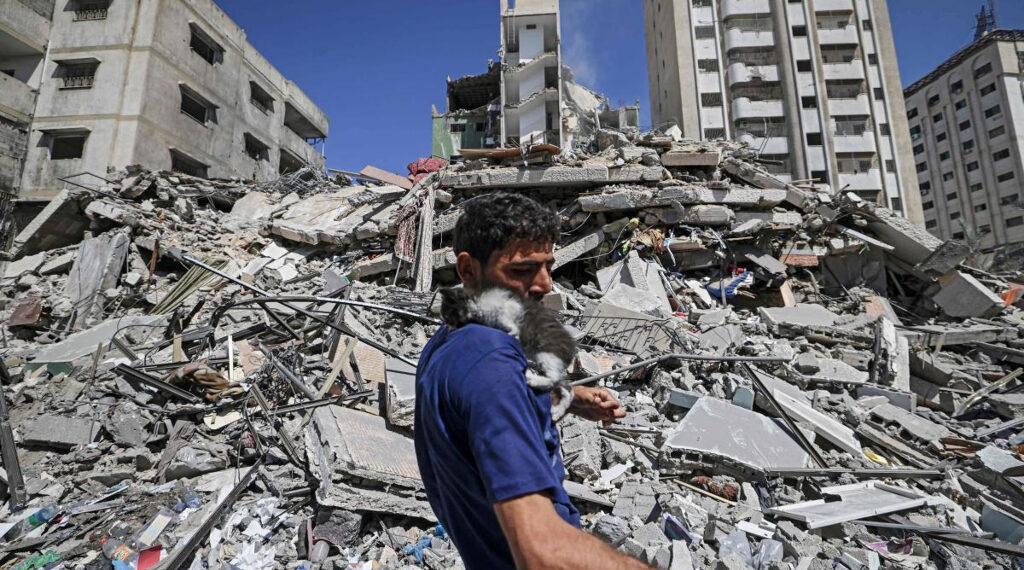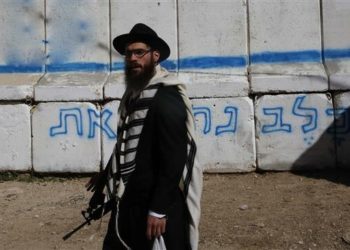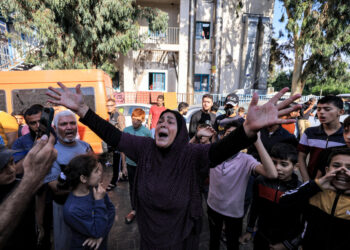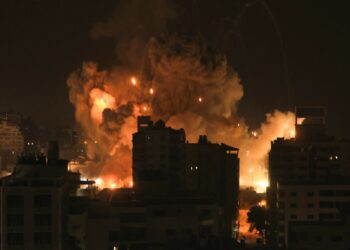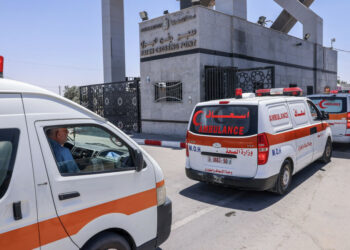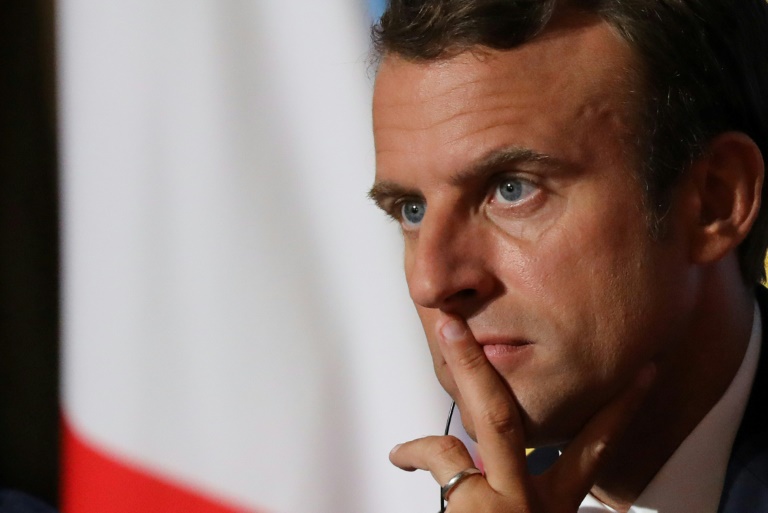Deafening air strikes and rocket fire once more shook Gaza overnight and early Wednesday amid an international diplomatic push to broker a ceasefire after more than a week of bloodshed.
Prime Minister Benjamin Netanyahu said Israel’s bombing of Gaza had set its Hamas Islamist rulers back “many years” since it began on May 10 in response to Hamas rocket fire.
Warplanes hit Gaza City again in the pre-dawn hours, with the Israeli military continuing to target Palestinian militant leaders and infrastructure in the crowded enclave, under Israeli blockade for nearly 15 years.
Randa Abu Sultan, 45, said her family were all gathered in one room to sit out the night.
“We’re all terrified by the sound of explosions, missiles and fighter jets,” said the mother of seven.
“My four-year-old son tells me he’s scared that if he falls asleep, he’ll wake up to find us dead.”
The Israeli army said it had attacked “40 underground Hamas targets” overnight in the southern Gaza Strip.
In the northern Gaza Strip, a journalist working for Hamas-linked Al-Aqsa radio was killed when an Israeli strike hit his home north of Gaza City, authorities said, the first reporter killed during the current round of violence.
Israeli air strikes have killed at least 219 Palestinians, including 63 children, in Gaza since May 10, the territory’s health ministry said.
Palestinian rocket fire has killed 12 people in Israel, Israeli police said.
Overnight, armed groups fired 50 rockets towards southern Israel, 10 of which fell short and struck inside Gaza, the Israeli military said.
A UN Security Council meeting broke up without issuing a statement late Tuesday, but France then said it had proposed a resolution calling for a ceasefire, in coordination with Israel’s neighbors Egypt and Jordan.
Zhang Jun, Beijing’s ambassador to the UN, told reporters his team had heard the French ceasefire proposal and China was “supportive”.
Another diplomat said the proposal would seek to end hostilities, but also “allow humanitarian access”.
Humanitarian crisis
The United States, a key Israel ally, has repeatedly blocked adoption of a joint UN Security Council statement calling for a halt to hostilities.
But EU foreign policy chief Josep Borrell backed mounting calls for a ceasefire and urged the Israeli military to act in a “proportionate” manner.
Speaking at an air force base in southern Israel on Tuesday, Netanyahu said Hamas and Gaza’s second biggest armed group, Islamic Jihad, had “received blows they didn’t expect”.
“We’ll continue as long as necessary to bring… quiet back to the citizens of Israel,” he added.
Hamas has launched nearly 3,700 rockets at Israel since May 10, prompting many people living in communities near the border to remain in bomb shelters virtually around the clock.
Israel’s bombing campaign has left Gaza’s two million population desperate for relief.
Some 72,000 civilians have fled their homes, seeking refuge in UN-run schools and other public buildings, the United Nations says.
An international relief convoy that started rolling into Gaza from Israel Tuesday, was halted when Israel swiftly ended its reopening of the Kerem Shalom border crossing, citing a mortar attack on the area.
Israel says its fighter jets have targeted Hamas’s underground tunnel network, which it has previously acknowledged run in part through civilian areas.
An air raid Monday knocked out Gaza’s only Covid-19 testing laboratory, the health ministry said, and the Qatari Red Crescent said a strike damaged one of its offices.
Hospitals in the territory, which has been under Israeli blockade for almost 15 years, have been overwhelmed by patients and there are frequent blackouts.
The healthcare system was already facing severe strain from the coronavirus pandemic.
A total of 1,530 people have been wounded, according to health ministry figures.
‘Day of anger’
On Tuesday, Israeli forces and protesters clashed in annexed east Jerusalem and across the occupied West Bank, as Palestinians rallied in solidarity with their embattled compatriots in Gaza.
The Palestinian health ministry said Israeli forces shot dead four Palestinians, including one the Israeli army said had attempted to attack soldiers, bringing to 24 the number of Palestinians killed in the territory since May 10.
The Palestinian Red Crescent said its teams had treated more than 150 people in Jerusalem and the West Bank, including 35 with bullet wounds.
The Israeli army said troops came under fire north of Ramallah, and two of its soldiers were wounded.
Palestinian president Mahmud Abbas‘s Fatah movement had called for a “day of anger” Tuesday, a call echoed in Arab and ethnically mixed towns inside Israel.
“We are here to raise our voice and stand with the people in Gaza who are being bombed,” Ramallah protester Aya Dabour told AFP.
In east Jerusalem’s Sheikh Jarrah neighborhood, Palestinian protesters faced off against police, who used stun grenades and “skunk water” cannon to disperse protesters.
The latest escalation was sparked after Israeli police’s storming of east Jerusalem’s flashpoint Al-Aqsa mosque compound, one of Islam’s holiest sites, during the Muslim holy month of Ramadan and injuring hundreds of worshippers, following clashes over planned evictions of Palestinian families from homes in Sheikh Jarrah.


